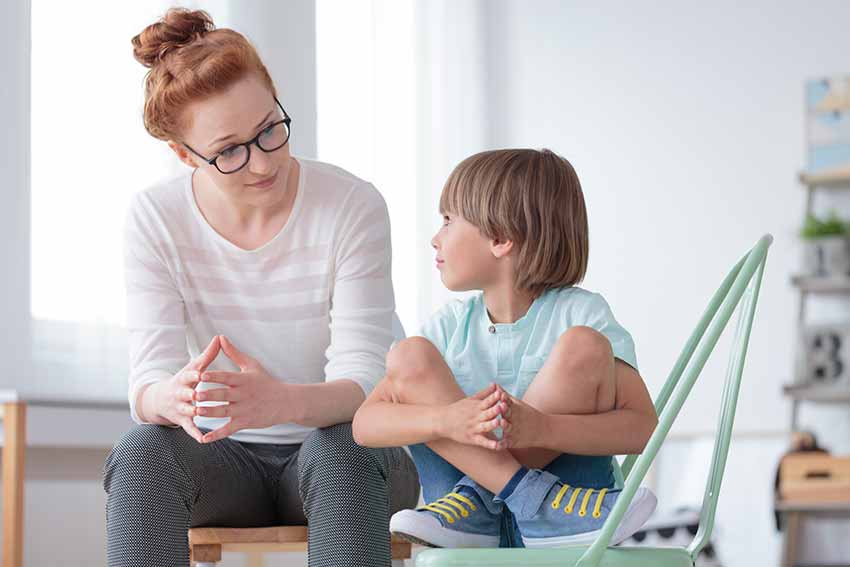
- January 9, 2023
- Center for Developmental Psychiatry
How To Identify Behavioral Problems in Children
Approximately 10% of children aged between 6-11 have ADHD. As more people become aware of the condition, diagnoses are likely to keep increasing. But this isn’t the only behavioral condition common among young children today.
Lesser-known conditions such as Conduct Disorder and Oppositional Defiant Disorder present different challenges. How can you know whether your child is manifesting typical rebellious traits or actually has a behavioral problem?
Behavioral problems in children usually follow a list of tell-tale signs. Using these, you can identify whether they are suffering from a behavioral condition. Equipped with that knowledge, you can decide how best to help your child.
To learn more, read on for our brief overview of behavioral problems in children and how you can identify them. We’ll cover the most common problems and the symptoms that identify them.
ADHD
ADHD falls under the umbrella of neurodivergence. The condition has a genetic component, so will be with people their whole lives. Specifically in childhood though, look for these symptoms to identify ADHD:
- Inattentiveness
- Hyperactivity
- Impulsivity
- Difficulty regulating emotions
- Significant emotional highs and lows
These behavioral issues in children may seem relatively harmless. Over time though, they can impact relationships as well as their education.
Oppositional Defiant Disorder
As the name suggests, this problem is characterized by oppositional and defiant behavior. Examples of common Oppositional Defiant Disorder (ODD) behaviors include:
- Losing their temper
- Arguing
- Refusing to comply or follow rules
- Lashing out
- Deliberately irritating others
- Refusing to accept blame for mistakes
These behaviors manifest in every child from time to time. But as we will go on to explain, these behaviors occurring often suggests a child is struggling with ODD.
Interestingly, children with ODD usually display these behaviors more around those they know well. This obviously includes parents or caregivers, as well as siblings, friends, and teachers. However, a child with ODD may behave better or at least be quieter and more discreet around those they don’t know.
There is also a significant overlap in children with ADHD and ODD. More than half of those with ADHD also have ODD. A child with both conditions may display even clearer symptoms as they struggle to regulate their emotions.
Conduct Disorder
Conduct disorder (CD) is arguably the most serious of these three behavioral problems. Children with CD aren’t just verbally abusive but may be physically aggressive. The four major categories of symptoms are:
- Aggression
- Defiance
- Deceit
- Destructive behavior
Children with CD may manifest just one or multiple categories of behavior issues. Typical behaviors include:
- Physical aggression or abuse
- Threatening or bullying
- Physical fighting
- Using weapons
- Animal abuse
- Sexual assault
- Property damage
- Stealing
- Shoplifting
- Breaking and entering
- Arson
- Drug use
- Other criminal activity
- Running away from home
- Lying to avoid responsibility or to gain something
A child with CD may manifest only a couple of these behaviors. In that case, how can you know whether your child made one mistake or has a behavioral problem? The next section will outline identifying behavioral problems in children that require attention.
When to Seek Help for Behavioral Problems in Children
Of course, not every child that displays these behaviors has a behavioral problem. As children age, they’ll go through several phases in which their behavior changes or becomes less predictable. And some rebellion is to be expected as a child grows up.
There are three major ways to identify whether your child has a problem that needs treatment. They are the length of time, the frequency of the behaviors, and where they happen. These help in conclusively diagnosing behavioral problems in children.
Length of Behavioral Issues
How long has your child been manifesting these behavioral problems? If they have only just started, there is sadly no way yet to know their cause. When the problems have persisted after a while, it indicates a real treatable problem.
For many conditions, at least six months of behavioral patterns are enough. This shows the child isn’t just going through a phase but is battling with a real issue.
In the case of neurodivergent issues like ADHD, it is a lifelong condition. In seeking a diagnosis, practitioners will look for evidence throughout their life of the condition.
But don’t worry! Even if behavioral issues connected to ADHD are newer, other symptoms that are less obvious will likely have been there all along.
Frequency of Behavioral Issues
It’s normal for a child to be occasionally inattentive, impulsive, or defiant. What characterizes behavioral problems is their frequency. If the behaviors manifest regularly, and far more so than in their peers, this indicates an issue.
Prevalence of Behavioral Issues Across Several Areas
Behavioral problems will rear their heads in every area of life. That may be at school, at home, and with friends.
If problematic behavior manifests in only one of these contexts, it may not be a treatable behavioral problem. Rather, it may be a learned social habit or attitude. But if children act consistently problematic across all areas, there is likely a larger issue at work.
How to Get Help For You and Your Child
If you think your child may have a behavioral problem, it’s best to seek professional help to manage it. Even if they don’t, but you’re still struggling to manage their behavior, we can help.
Our services for behavioral problems in children include parent guidance. We can also conduct psychiatric evaluations. Whatever help you need, we’re here to guide you through.
Are you ready to make parenting that bit easier?
We’ll help you figure out what the next step for you and your child should be. Schedule an appointment for a no-commitment consultation with us today.